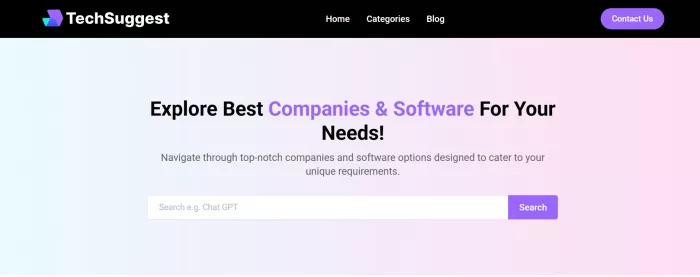
Choosing the right software for your business is a high-stakes decision. With thousands of tools all claiming to be the best, it's easy to feel overwhelmed. Platforms like TechSuggest.io have emerged to solve this problem, promising a "smarter" way to find the tech you need.
But does it actually work? This guide cuts straight to the chase. We'll give you a quick, honest verdict on TechSuggest.io and then break down how it stacks up against the four established alternatives you should be using for your software research in 2025.
Table of Contents
Quick Verdict: Is TechSuggest.io Worth Using?
The 4 Best Software Discovery Platforms for 2025
1. G2 (The Peer Review Powerhouse)
2. Capterra (The Comprehensive Directory)
3. TrustRadius (The In-Depth Review Specialist)
4. Product Hunt (The Hub for New & Emerging Tech)
At a Glance: Comparing the Top Platforms
Final Thoughts: How to Choose the Right Tool
Frequently Asked Questions (FAQ)
Quick Verdict: Is TechSuggest.io Worth Using?
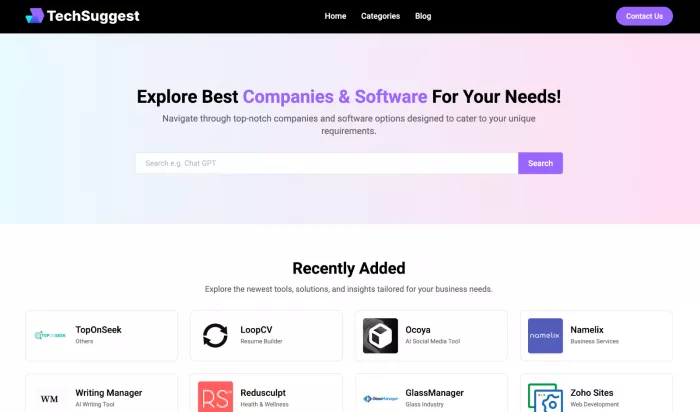
Yes, it’s a powerful discovery tool that redefines how you should start your software search. TechSuggest.io is a legitimate platform whose key strength is its "smart recommendation" feature.
It saves you time by providing a curated, intelligent shortlist based on your needs, offering a refreshing alternative to the overwhelming and sometimes noisy directories on larger sites. While it complements its recommendations with user reviews, its primary value comes from this guided discovery. Think of it as your expert consultant for creating a shortlist; you can then use the larger platforms for exhaustive peer validation.
The 4 Best Software Discovery Platforms for 2025
1. G2 (The Peer Review Powerhouse)
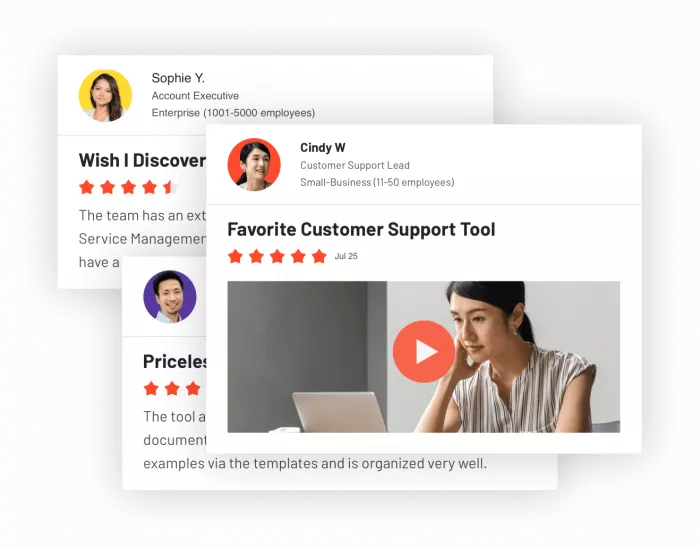
G2 is the industry leader for peer-to-peer software reviews, hosting millions of reviews from verified users. Its quarterly G2 Grid reports are a staple for any serious B2B software buyer.
Key Advantage: The massive volume of verified user reviews. The sheer amount of authentic, real-world data on G2 is unmatched.
What it Lacks: An unbiased playing field, according to some. G2's business model relies heavily on vendors paying for visibility, which can influence search results.
Best for: Anyone who wants to make a software decision backed by the largest possible sample size of authentic user feedback.
2. Capterra (The Comprehensive Directory)
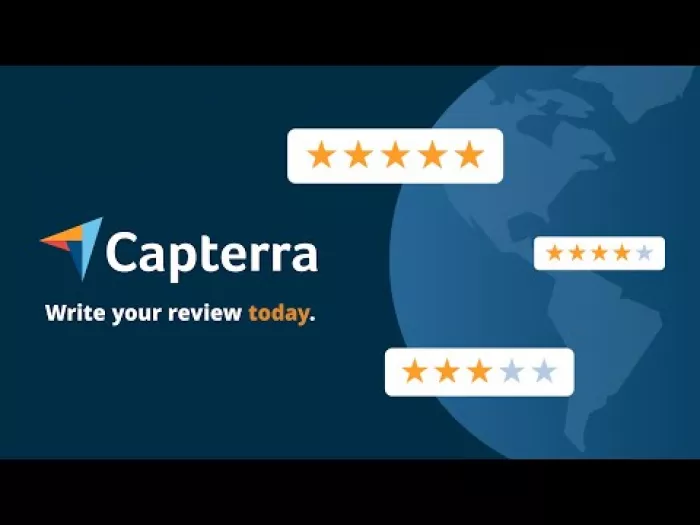
Owned by Gartner, Capterra is a massive software directory known for its incredibly detailed categories and filters. It's the perfect tool for comparing a wide range of options in a specific software niche.
Key Advantage: Granular categories and powerful filters. Capterra makes it easy to find and compare software that meets very specific criteria.
What it Lacks: The same level of detailed, long-form reviews as some others. Its reviews are plentiful but often not as in-depth as those on a site like TrustRadius.
Best for: Businesses that know what type of software they need and want to compare a large number of vendors side-by-side.
3. TrustRadius (The In-Depth Review Specialist)
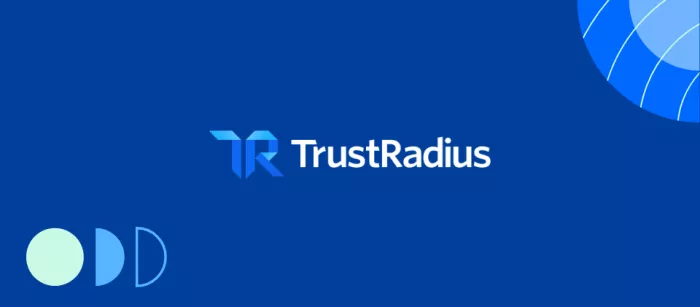
TrustRadius has built its reputation on providing high-quality, in-depth reviews. It avoids a "pay-to-play" model and vets every review for quality and detail, resulting in highly trusted, nuanced insights.
Key Advantage: A strong focus on review quality and authenticity. Because vendors can't pay to influence rankings, there's a high degree of trust in their reviews.
What it Lacks: The huge quantity of reviews found on G2. While its reviews are deep, its overall volume of feedback is smaller.
Best for: Buyers who value detailed, unbiased feedback over a massive number of reviews and want to understand a product's true pros and cons.
4. Product Hunt (The Hub for New & Emerging Tech)
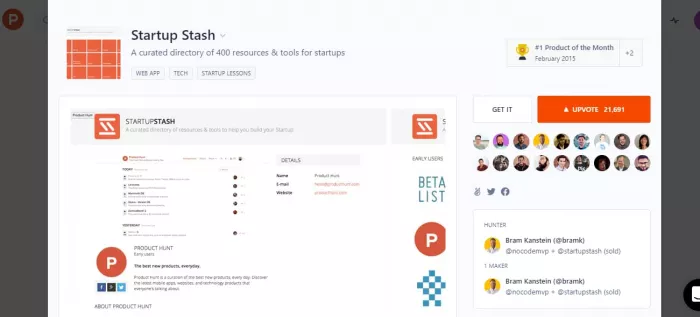
Product Hunt isn't a traditional review site; it's a launchpad for new tech products. It's the best place on the internet to discover innovative and cutting-edge tools, often before they become mainstream.
Key Advantage: A direct line to the newest technology. It's the ultimate resource for finding innovative tools that haven't hit the big review sites yet.
What it Lacks: Long-term user data. Since the products are brand new, you won't find years of reviews. You are betting on the latest and greatest.
Best for: Tech-forward startups and innovation teams who want to adopt cutting-edge tools as soon as they are released.
At a Glance: Comparing the Top Platforms
| Platform | Best For | Key Feature | Model |
| TechSuggest.io | Initial Discovery | Guided Recommendations | Directory |
| G2 | Data-Driven Decisions | Massive Review Volume | Peer Reviews |
| Capterra | Comparing Options | Granular Categories | Directory |
| TrustRadius | Unbiased Insights | In-Depth Reviews | Peer Reviews |
| Product Hunt | Finding New Tech | Daily Product Launches | Discovery Platform |
Final Thoughts: How to Choose the Right Tool
No single platform is perfect. The smartest way to choose software in 2025 is to use a combination of tools. With the global enterprise software market being a multi-hundred-billion-dollar industry [https://www.statista.com/outlook/tmo/software/enterprise-software/worldwide], a careful approach is essential.
- Discover: Use TechSuggest.io or Capterra to get a broad overview of the available solutions.
- Validate: Once you have a shortlist, dive deep into the real-world user reviews on G2 and TrustRadius to make your final choice.
- Innovate: Keep an eye on Product Hunt to find new tools that could give you a competitive edge.
By using this multi-step process, you can be confident you're choosing the right software for your business.
Frequently Asked Questions (FAQ)
1. What's the difference between a software directory and a recommendation engine?
A directory (like Capterra) provides comprehensive lists that you filter and sort yourself. A recommendation engine (like TechSuggest.io claims to be) takes your specific needs as input and suggests a shortlist of solutions for you, acting more like a consultant.
2. How much should I trust online software reviews?
You should trust them a lot, but always read critically. Look for patterns in the feedback rather than focusing on a single glowing or negative review. Platforms like G2 and TrustRadius that verify reviewers' identities are generally more trustworthy than open platforms.
3. Where can I find reviews for brand new startups or tech?
Product Hunt is the number one place for this. It's specifically designed for discovering and discussing new product launches. You'll find feedback from early adopters and can often talk directly to the founders in the comments section.




Comments